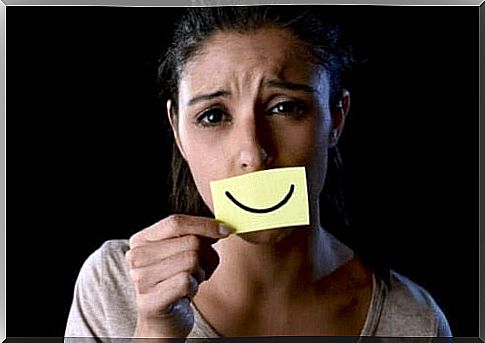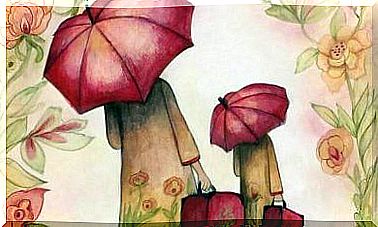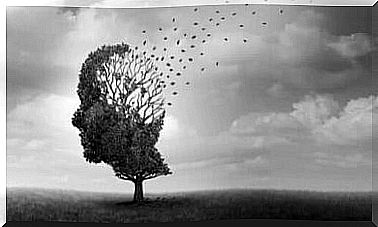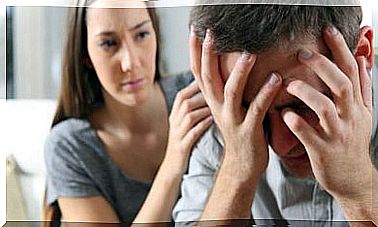Obsessed With Being Happy? Allow Yourself To Have A Bad Day!

Positive psychology came to prominence in the 90s through the work of psychologist Martin Seligman. He defined it as “the scientific study of what makes life worth living.” Since then, life coaches, motivational speakers and self-help books basically force you to be happy. The expression for this “dictatorship” of joy is referred to in English as “happycracy” – to be obsessed with being happy. Today we will talk about the psychological consequences of forcing joy on you.
Is it wrong to have a bad day? Does the fact that I’m in a bad mood sometimes make me sick? If I get upset that things are not working out, does that mean I need professional help to deal with life? The answer is a resounding “no”.
Pathologizing normal emotions actually leads to an epidemic of misfortune. Ironically, if you feel that your joy does not conform to the conventional definition, you will feel even more miserable.

What does it mean to be obsessed with being happy?
What is joy? Is its meaning universal? Can someone teach you to be happy or give you the tools you need to be happy? The market for positive psychology would say “yes”. However, if this were true, the incidence of depressive disorders and the suicide rate would not be increasing as fast as they are.
The message from “happycracy” is that if you are not happy, it is your fault. It blames your way of thinking and your coping skills in different situations, as well as your inability to deal with negative emotions. Today, after all, you have an entire industry on hand to help you be happy. Life coaches, self-help books, stickers for your bathroom mirror to remind you to smile while brushing your teeth… Happiness is business in every sense, so it’s no wonder you can become obsessed with being happy.
It seems that we can trace this obligation back to James-Lange’s theory of emotions. It erroneously claimed that emotions come from facial expressions. It’s like saying ‘I’m sorry I’m crying instead of’ I’m crying because I’m sorry.
So even though everything goes to the forest, is all I need to do to smile to feel happy again? Or if I’m going through a difficult time in my life, will a message on a mug make everything better?
It seems ridiculous, but the number of people buying these messages is staggering. The problem is that the consequences of “positive” thinking are often very negative. It can mean complete and absolute intolerance of discomfort, no matter how small this may be.
What are the consequences of forced joy?
As we just mentioned, people today are quite intolerant of discomfort, their own and others’. We do not like to feel sad because it makes us feel weak. How many times have you said (or heard someone say) “But don’t cry!” to someone crying? How many times have you said “I do not want to cry” when your body actually asks you to? Emotions are adaptable, they serve a purpose. Crying is sometimes very necessary and healthy.
Trying to suppress emotions can make you feel worse than you did from the beginning. It can even cause you to develop serious emotional disorders. Here are some of the consequences:
Debt
Feelings of guilt and varying levels of pressure. Pressure because “happycracy” is forcing you to be okay right now, because life is wonderful and if you cry you will waste it. And guilt, not only because you feel bad at a certain moment, but also because you do not do what you need to do to feel better.
You may need to be sad for a week, but it’s too much for society. Your feelings are then not considered normal. Instead, you exaggerate and dwell on things. People around you may even begin to think that you like to feel depressed. “Happycracy” makes you a less empathetic person who believes that other people are to blame for their own misfortune. Is there anything less human than that?
This in turn can cause:
Loneliness and lack of social support
This is one of those rare occasions when the negative things you think others think about you may actually be true. You feel that the people around you will not be able to accept your emotional state. And maybe they really do not tolerate it, which makes them distance themselves. This happens because you, just as you can not accept your own grief and discomfort, do not know how to respond to others.
We are social beings. The truth is that a good support network is often the key to getting through a difficult time or recovering from a bad experience. It makes you feel loved, validated and accepted. Without this, things get complicated. Your problems seem bigger and you are more stressed and anxious.

Do not be obsessed with being happy: respect your and other people’s feelings
Personally, I’m more like the Grinch than Santa. To me, there is nothing more real, sincere and true than accepting sorrow and anger. Because it’s normal to have bad days, no matter how resilient you are. Sometimes life gives you lemons and you just do not feel like making lemonade. Difficult circumstances that overwhelm you without any easy way out.
Having a bad day and feeling down does not make you a bad person. It makes you a genuine person. Be a little careful with people who are always happy because eternal well-being does not exist. Perhaps avoiding is their coping strategy, which is much less healthy and constructive than experiencing and accepting negative emotions.
Emotions, both positive and negative, serve different purposes. In other words, they are all necessary. Always covering them only makes things worse.
Respecting your own and others’ feelings, normalizing them and encouraging emotional expression, not only makes you more human. It encourages a healthy and respectful transition to a more positive emotional state. One without obligations, injunctions or time pressure. Remember that you are so much more than just a negative feeling.









